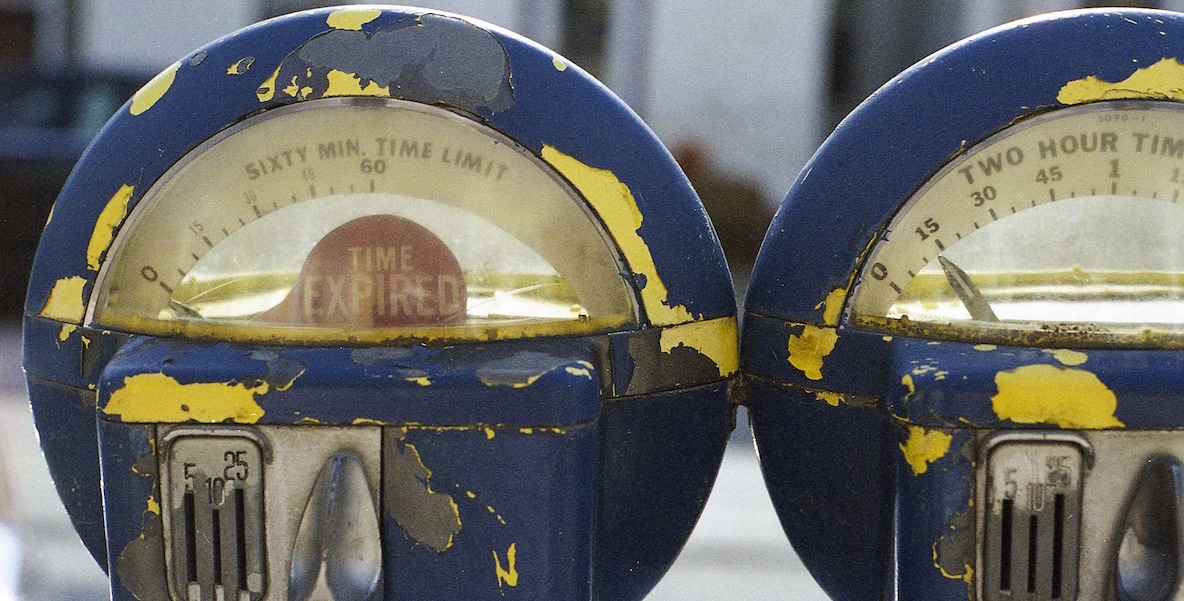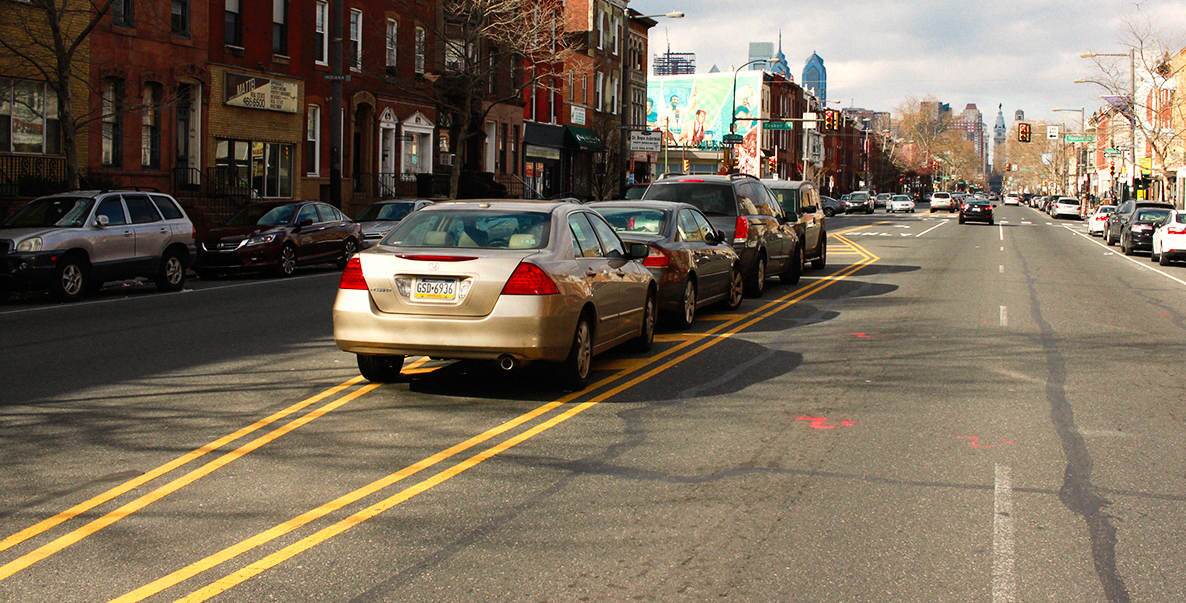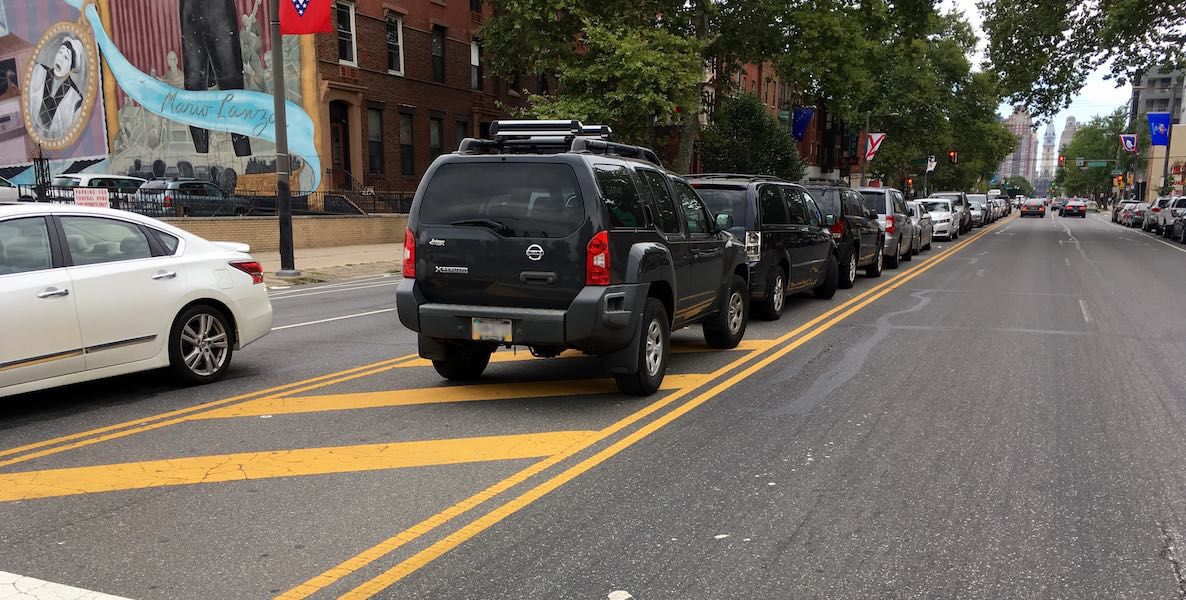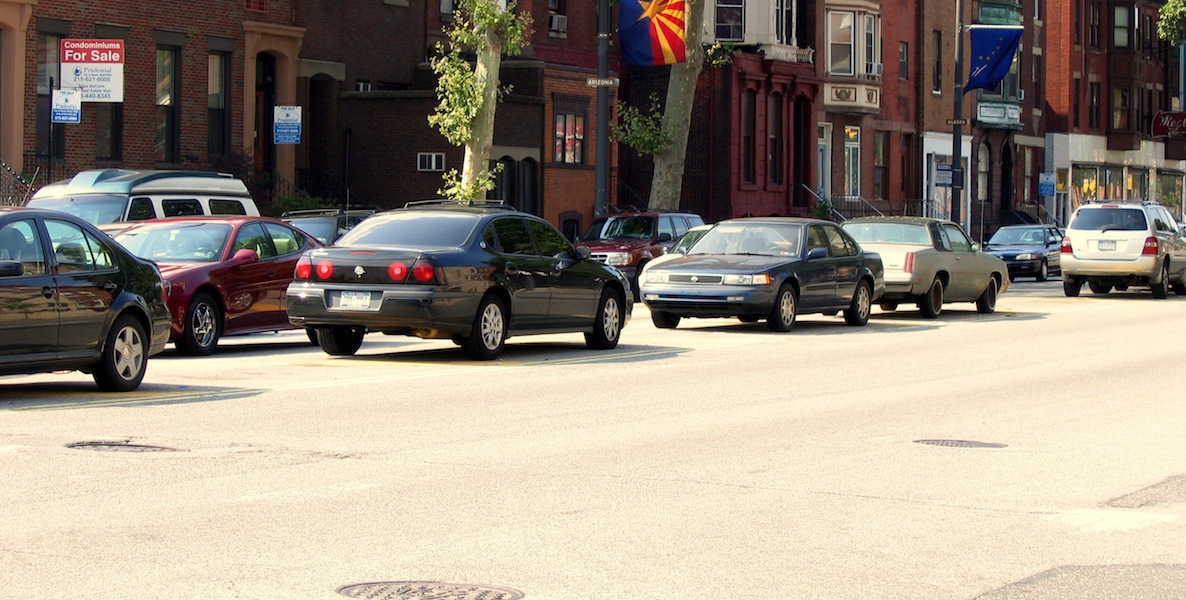Mayor Kenney, City Council, and oTIS have—rightly—taken a lot of flack in recent weeks for their lack of action on bike lanes and Vision Zero. Philadelphia does little more than pay lip service to urbanist planning ideas—the car is still king, no matter what we told Amazon in
our marketing materials.
I don’t completely blame our leaders for dragging their feet on this. Parking really is our local third rail, and suggestions for enforcement, whether the Broad street median, the Spruce/Pine bike lanes, or crosswalks around the city are met with intense hostility from car owners. Our politicians have gotten the message: mess with the car-owning lifestyle too much and they’ll be thrown right out of office.
This has been really frustrating to watch. For many Philly neighborhoods, our system of on-street parking is horrible for everyone. For car owners who circle blocks looking in vain for a space, or who are afraid to move their cars when they find a good spot. For pedestrians, who
walk down narrow sidewalks single file, every other inch given over to parking, and who brave blocked crosswalks. For delivery trucks, who have no choice but to block bike lanes or travel lanes just to do their jobs. Our system doesn’t work, but can’t change because there hasn’t been a strong constituency to demand it.
A substantial number of cars on the street are used only on weekends or even less often. Their owners would suddenly have a strong incentive to get rid of them to claim their credit.
But I have an idea to actually get Philadelphians excited to get rid of their cars: Pay them.
To start, give all Philadelphia residents a nice wage tax credit across the board. Let’s say $500. Simultaneously, start charging a significantly higher fee for on-street parking and residential permit parking, and enforce it rigorously.
Does the math work? That would depend on hitting the exact right number for the tax credit. To look at the extremes, if the credit and fee were $10,000, the incentive to get rid of your car would be huge, and that probably would create a major revenue problem as almost every Philadelphian clamors to ditch their cars. At the opposite end, a credit/fee of $20 isn’t significant enough to really change anyone’s behavior.
![]() I use $500 for the sake of starting a conversation, and assume that the increased revenue from suburban residents—about 100,000 more people commute into the city than commute out to the suburbs—who park on the street will offset the loss in revenue from Philadelphians who get rid of their cars. But the number may vary by a few hundred dollars in either direction.
I use $500 for the sake of starting a conversation, and assume that the increased revenue from suburban residents—about 100,000 more people commute into the city than commute out to the suburbs—who park on the street will offset the loss in revenue from Philadelphians who get rid of their cars. But the number may vary by a few hundred dollars in either direction.
If you live car-free, enjoy your wage tax cut.
Philadelphians who keep their cars, including those who need their cars for work (a legit critique when we talk about charging for parking) won’t see a substantial change financially. However, they will see an immediate improvement in their quality of life because finding parking on the street will be much, much easier.
Why?
A substantial number of cars on the street are used only on weekends or even less often. Their owners would suddenly have a strong incentive to get rid of them to claim their credit.
What about non-residents? The truth is that suburban car commuters have long enjoyed an unfair subsidy through Philly’s free parking. It’s time to reverse this. To make sure suburban drivers are paying their fair share (for the road wear, the pollution, and the congestion they bring) I’d recommend they be ineligible for the wage tax credit, and of course still have to pay for on-street parking.
I believe the right policy can build and energize a diverse, urbanist constituency that will show our politicians that they don’t have to be afraid of third rails—they can be used to power forward movement, too.
What else would we have to do to make sure this works for everyone? We’d need exemptions for people with unique needs or who may not work but have legitimate need for a car (senior citizens and people with disabilities, for example). We would need to assess a yearly fee for active personal garages,
which would otherwise would function as a loophole. We would need to beef up our carshare and rental capacity and availability throughout underserved neighborhoods. SEPTA would have to be prepared to manage an increase in ridership. The PPA would have to develop an easy,
accessible payment system tied to robust city-wide enforcement.
![]() All of these changes will be well worth it though. We would free up a lot of latitude politically to improve quality of life issues that have been hampered by car owners’ anxiety, as well as the noise, traffic, air pollution, and emotional stress from living next to machines that can injure or kill you in an instant. And maybe by cutting the wage tax, we’ll be encouraging businesses to locate and expand in Philadelphia and creating more short, in-town commutes for our residents.
All of these changes will be well worth it though. We would free up a lot of latitude politically to improve quality of life issues that have been hampered by car owners’ anxiety, as well as the noise, traffic, air pollution, and emotional stress from living next to machines that can injure or kill you in an instant. And maybe by cutting the wage tax, we’ll be encouraging businesses to locate and expand in Philadelphia and creating more short, in-town commutes for our residents.
If we can pull it off, this policy points the way to a Philadelphia that is more peaceful, less stressful, quieter and offers hands down the best quality of life in the country. I believe the right policy can build and energize a diverse, urbanist constituency that will show our politicians that they don’t have to be afraid of third rails—they can be used to power forward movement, too.
Ryan Lohbauer is a long-time Philadelphia resident and architect specializing in zoning and urban development at Stanev Potts Architects. He is a driver, cyclist, pedestrian and public transit user.
Photo via Flickr





